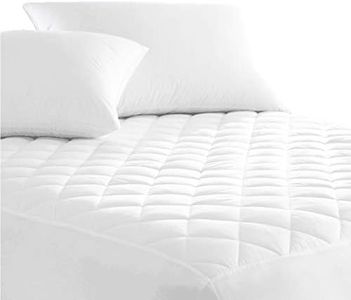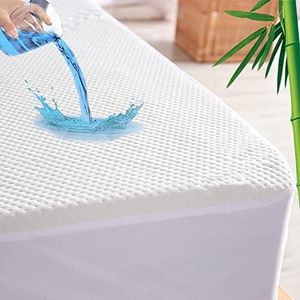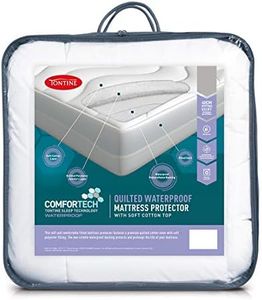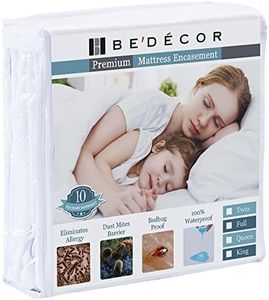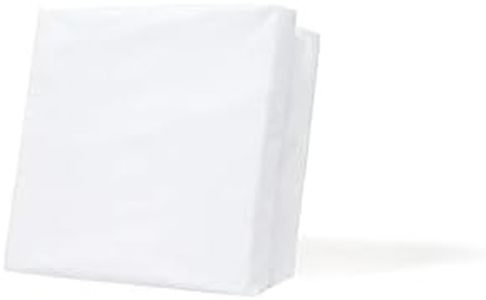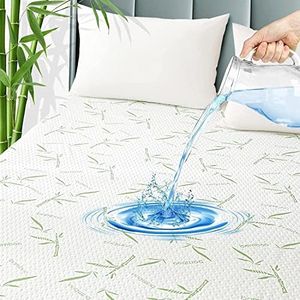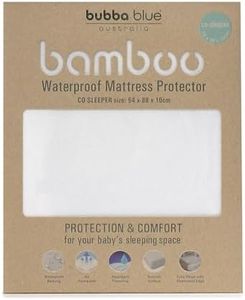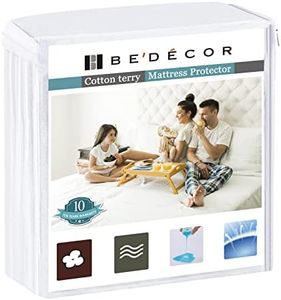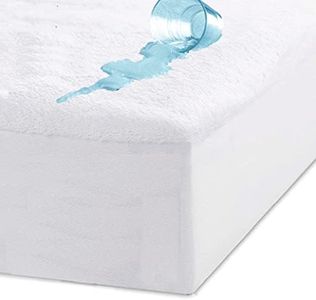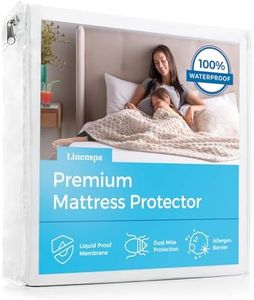We Use CookiesWe use cookies to enhance the security, performance,
functionality and for analytical and promotional activities. By continuing to browse this site you
are agreeing to our privacy policy
10 Best Mattress Protectors
From leading brands and best sellers available on the web.By clicking on a link to a third party's website, log data is shared with that third party.
Buying Guide for the Best Mattress Protectors
Choosing the right mattress protector is essential for extending the life of your mattress and ensuring a comfortable sleep. Mattress protectors help keep out dust, spills, allergens, and can add a layer of comfort as well. As you shop for one, think about your main concerns: are you looking to block spills, protect against allergens, or just add a bit of softness? Focusing on the following key specifications will help you find the best fit for your needs.MaterialThe material of a mattress protector affects its feel, breathability, noise, and protective qualities. Common materials include cotton, polyester, terry cloth, bamboo, and blends, sometimes with a waterproof backing. Natural fibers like cotton and bamboo are breathable and soft, while synthetics like polyester can be more durable and less expensive. If you want a cooler sleep or have sensitive skin, natural fibers are a good choice. For those mainly concerned with spill protection, look for materials that include a waterproof layer.
WaterproofingWaterproofing is what prevents liquids from passing through the protector and damaging your mattress. Some protectors have a thin plastic or polyurethane layer inside, while others offer basic water resistance. Total waterproofing is best for children, those with allergies, or anyone who wants strong protection against spills and stains. If you prefer breathability and don't need heavy spill protection, water-resistant options might feel more comfortable.
Size and FitMattress protectors come in various sizes and fitting styles, from elastic-fitted sheets to zippered encasements. It’s crucial to match the protector to the exact size and depth of your mattress. Deep-pocket protectors are made for thicker mattresses or those with toppers, while standard fit is good for traditional mattresses. If you need full coverage (like for allergy control or bed bug prevention), choose an encasement style that covers the whole mattress.
Allergen and Dust Mite ProtectionSome mattress protectors are specially designed to keep out allergens like dust mites, pet dander, or pollen. These are usually tightly woven and may have a full encasement design. If you suffer from allergies or asthma, a protector advertising hypoallergenic qualities or allergen barriers is a good investment. Otherwise, a standard protector will usually suffice for general protection.
Breathability and CoolingBreathable mattress protectors allow air to move through while still protecting the mattress. This is important if you tend to sleep hot or live in a warm climate. Materials like cotton, bamboo, and newer cooling fabrics help reduce heat buildup. If cooling is a top priority, look out for protectors advertised for temperature regulation or moisture-wicking. If you’re less sensitive to heat, most basic protectors will be fine.
Noise LevelSome mattress protectors, especially waterproof ones, can make a crinkling noise when you move. This can be a disturbance if you’re a light sleeper. Protectors made with soft top layers and noiseless waterproof barriers are best if you want silence. If noise isn’t a big concern for you, any style will generally work.
Ease of CleaningMattress protectors are designed to be washed, but the ease and frequency can vary. Most can go in a standard washing machine, but some thicker or waterproof types may have special washing instructions. If you want something low-maintenance, look for protectors marked as machine-washable and easy-dry. Consider your cleaning habits—if you want to wash your protector often, pick one that stands up to frequent laundering.
